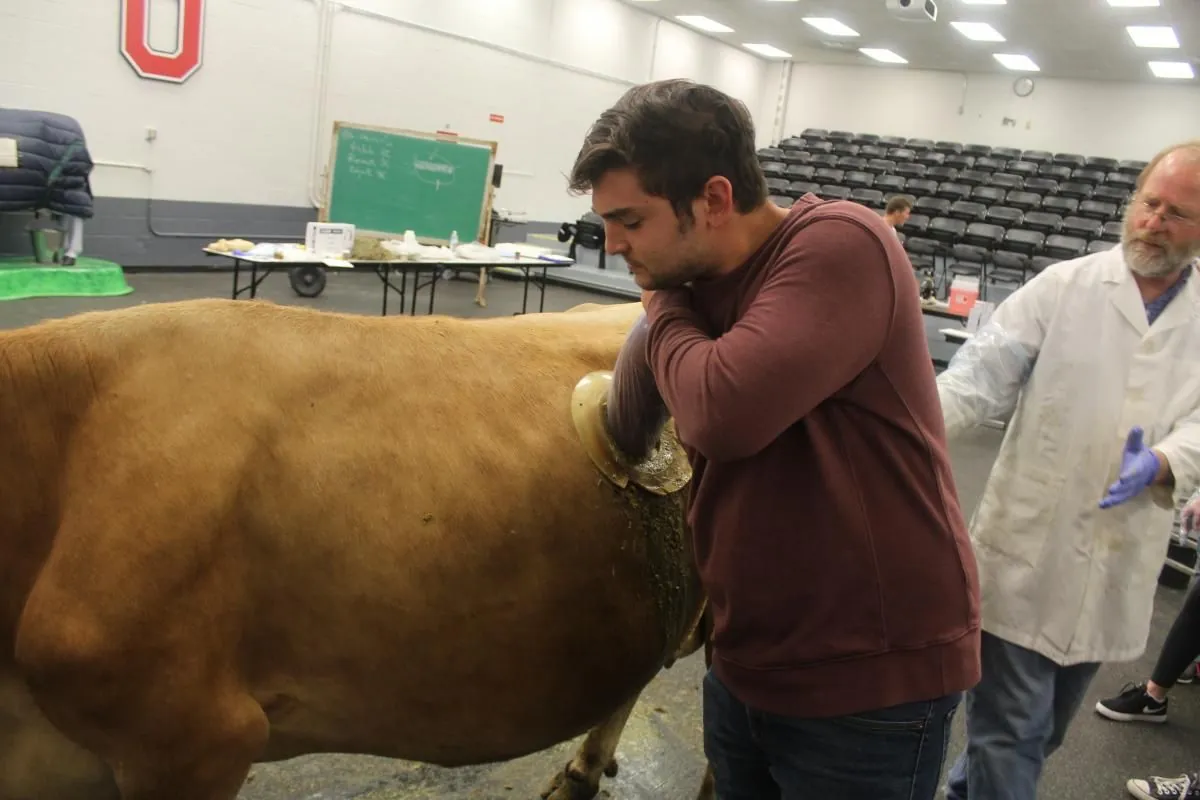French Scientists Unveil Breakthrough in Low-Methane Cow Breeding
French researchers have developed a method to breed cows with reduced methane emissions. This breakthrough could significantly decrease the livestock industry's impact on climate change.

French researchers at the National Research Institute for Agriculture, Food and Environment (INRAE) have made a significant breakthrough in the effort to reduce greenhouse gas emissions from livestock. The scientists have identified genetic markers that influence methane production in cows, potentially allowing for the breeding of cattle with lower emissions.
Philippe Mauguin, president of INRAE, described the development as "a revolution" in an interview with Le Parisien. The research is part of the French initiative "Methane 2030," which aims to decrease methane emissions from cattle by 30% over the next six years.
The importance of this discovery cannot be overstated, as cattle are the primary agricultural source of greenhouse gases worldwide. A single cow emits approximately 100 kg of methane annually, primarily through belching and flatulence. Methane, while shorter-lived than carbon dioxide, is 28 times more potent in warming the atmosphere.

The research team utilized a device called a "sniffer," originally developed for mine safety, to measure methane emissions from different cattle breeds at an experimental farm in Normandy. This tool, along with other methods, helped researchers establish a connection between amino acids in cow's milk and methane production.
Solène Freco, a bovine genetics expert at INRAE, explained that higher levels of amino acids in milk correlate with increased methane emissions. This discovery allows for a simple blood test to determine a cow's propensity for methane production, which will be available to all French farmers by 2025.
The Methane 2030 program aims to achieve its reduction goals through a combination of strategies:
- Genetic selection (one-third of the reduction)
- Dietary modifications (one-third)
- Improved farm management practices (one-third)
Dietary interventions include adding algae or essential oils to cattle feed, as well as incorporating plants like white or red clover to aid digestion. Another proposed method is to begin calving earlier, at two years instead of three, which could reduce an animal's methane emissions by approximately 10%.
To encourage farmers to adopt low-methane cattle, INRAE is considering introducing a special methane rating alongside existing metrics for productivity, fertility, and morphology. Sylvain Quellier, who oversees specifications for the Normandy breed, believes this would "certainly encourage the development of generation after generation of cows that are better for the climate."
As the global community continues to grapple with climate change, innovations like these in the agricultural sector will play a crucial role in reducing greenhouse gas emissions and mitigating environmental impact.
"It's ambitious but possible."
This groundbreaking research demonstrates the potential for scientific advancements to address complex environmental challenges, offering hope for a more sustainable future in livestock farming.


































